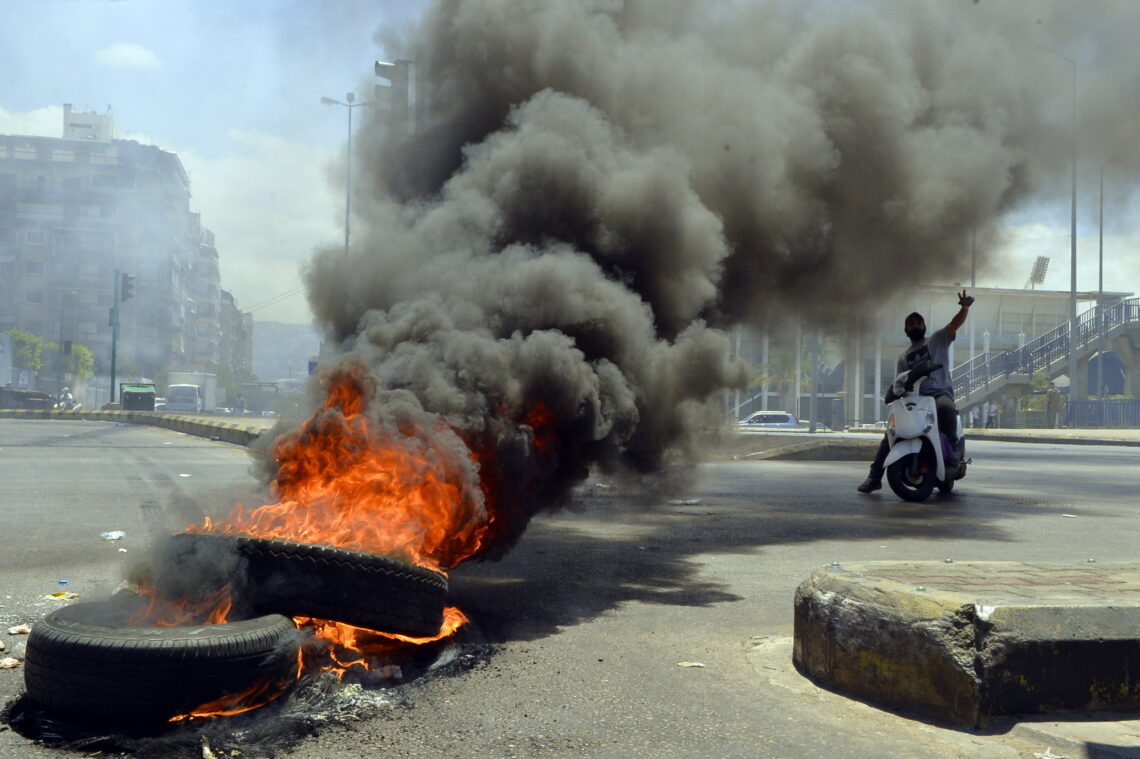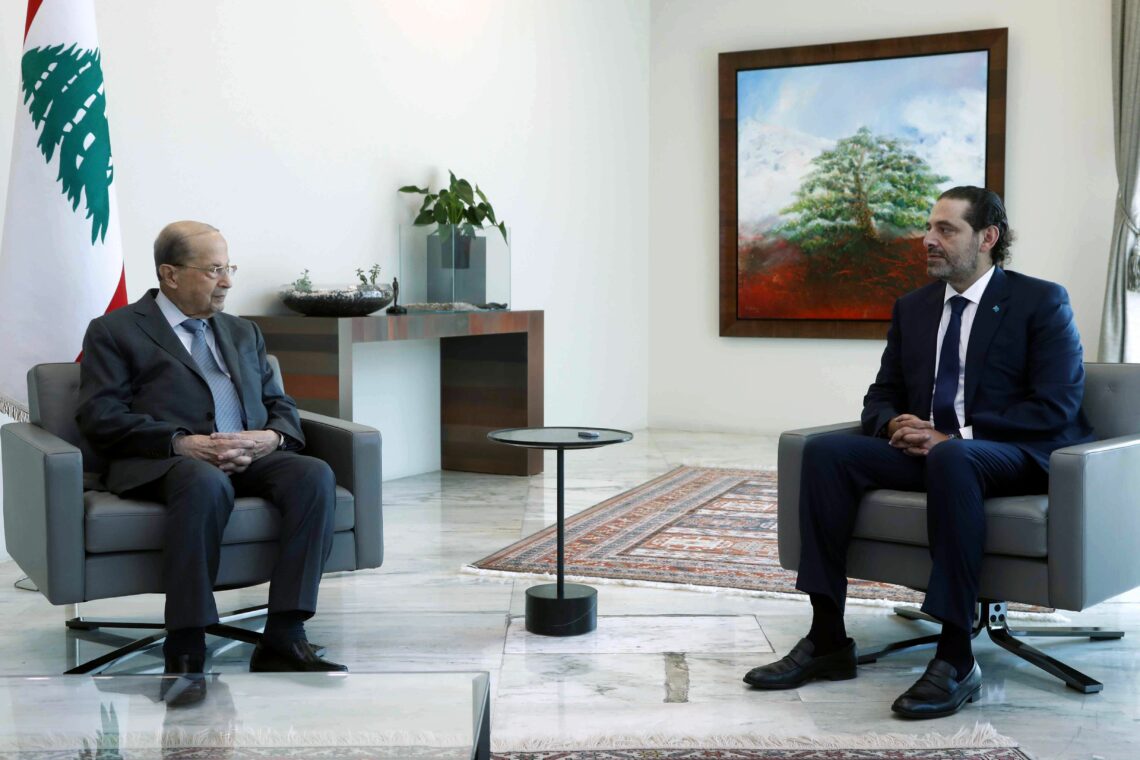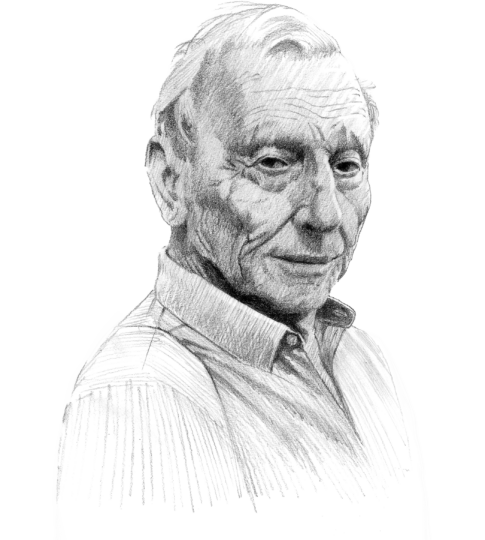Lebanon in free fall
The Lebanon crisis is so dire that the World Bank calls it one of the top three worst since the mid-nineteenth century. Problems have been building for a long time, but the main culprit is a corrupt political system with Hezbollah at its core.

In a nutshell
- Lebanon’s current crisis is rooted in its history
- Its political system encourages corruption and nepotism
- Hezbollah bears much of the blame for the country’s woes
On May 31, 2021, the World Bank released a report declaring that the current economic catastrophe in Lebanon “is likely to rank in the top 10, possibly top three, most severe crises episodes globally since the mid-nineteenth century.”
In March 2020, the country defaulted on a $1.2 billion bond repayment. Since 2019, the Lebanese pound has lost more than 90 percent of its value, tumbling from 1,500 pounds to the dollar (its official peg) to an unofficial value of 23,000 today. Banks no longer pay out foreign currencies to their customers. With a 50 percent unemployment rate, extreme poverty is rising.
Food and medicine are increasingly scarce, and the black market is flourishing. Power outages and cuts in water supplies are frequent, while drivers wait for hours for a few liters of gas. The army is selling its assets and asking the public for donations to pay salaries. International assistance is conditional on reforms that the government, mired in internal squabbles, is unable to undertake. Frequent demonstrations against its inability to act produce no results.
Beirut was once dubbed the Paris of the Middle East. People flocked there to enjoy the climate and the vibrant cultural scene. Yet Lebanon’s disaster has been years in the making. Born of the Sykes-Picot Agreement, Lebanon came into being in 1920 and attained its independence in 1943. It stood apart because of its extraordinarily diverse ethnic and religious population, and the need to establish checks and balances between the different communities.
Years of tension
According to the 1932 census, there were 900,000 Lebanese then. Christians made up 54.7 percent of that number – half of them Maronites and the rest split between 11 other denominations. Shia and Sunni Muslims, as well as Druze, comprised the other 45.3 percent. The unwritten National Pact of 1943 was a compromise reflecting the situation at the time: The president would be a Christian, the prime minister a Sunni Muslim, a Shia Muslim would head the parliament, the army would be commanded by a Maronite, and so on. The ratio of parliament members and senior officials would be 65 percent to 35 percent in favor of the Christians.
There has been no attempt to recalibrate the National Pact to take population changes into account.
There has been no new census since then, but it is estimated that there are nearly 9 million people living in Lebanon today – about 6.8 million Lebanese, and the rest migrants, immigrants and refugees. Together the Muslims and Druze probably account for 53 to 57 percent of the Lebanese people. (On top of that, some 1.6 million refugees are Palestinian, Iraqi and Syrian, and are overwhelmingly Muslim. They are not citizens and cannot vote, but providing for them is a huge drain on the economy.) There has been no attempt to recalibrate the National Pact to take these changes into account. As a result, growing tension between religious groups resulted in clashes and severe crises in 1958 and 1975. The consequences of these conflicts endure.
Two other factors had a major impact on Lebanon’s future. Palestinian Liberation Organization (PLO) militants led by Yasser Arafat, driven away from Jordan in 1970 following their attempt to take over the country, fled to Lebanon. They challenged the Christian militias and clashes soon escalated into a full-blown civil war that began in 1975 and shattered the economy. Palestinian militants also launched attacks against northern Israel, which retaliated in 1982. Ultimately, a multinational peacekeeping force supervised the evacuation of PLO forces from Lebanon. However, the civil war had led to Syrian intervention in the country and the emergence of Hezbollah, an Iranian-backed Shia militia that would continue harassing Israel, triggering more wars.
Hezbollah established a political wing whose members were elected to the parliament and soon became a major force in the country. As it deepened its hold, it slowly strangled the economy, diverting funds to its paramilitary wing (widely believed to be larger and stronger than the regular Lebanese army) and reinforcing its presence in predominantly Shia southern Lebanon. Despite the changing demographics, the 1989 Taif Agreement, which formally ended the civil war, introduced only minor changes to the National Pact. It attributed an equal number of representatives to the two blocs in the Lebanese parliament (Christian and Muslim, including the Druze) and gave more power to Sunni Muslims in the government. However, it preserved the predominance of the Christian bloc.
The agreement also mandated the dissolution of armed militias. The Christian units complied, but due to Syrian pressure, Hezbollah kept its weapons and the Syrian presence remained. From its inception, the elimination of Israel has been Hezbollah’s avowed goal. It pursues this end with the help of Iran, which provides financing, supplies state-of-the-art weapons and trains Hezbollah militants. Incessant border attacks, including a raid that left eight Israeli soldiers dead and two kidnapped in 2006, led to what became known as the Second Lebanon War. Hezbollah missiles rained on northern Israel and the Israeli Air Force launched devastating bombing raids. A United Nations-brokered cease-fire embodied in Security Council Resolution 1701 mandated an immediate disarmament of all Lebanese militias. Hezbollah did not comply. It claimed victory and attempted to topple the government.
Corrupt system
Lebanon’s political-economic crisis is a direct result of a flawed system bent on safeguarding the interests of religious groups that do not represent the citizens. It encourages corruption and nepotism. This mixture of factors makes it hard to see a resolution on the horizon.
This disaster had been building for years, but was triggered by a rapid decline in the country’s gross domestic product, from $55 billion in 2018 to $33 billion in 2020, or a drop of 40 percent per capita. Unemployment rocketed, store shelves emptied of basic goods and poverty spread. In 2019, there were large demonstrations calling for reforms and for the resignation of the country’s leaders. In August of that year, an acute foreign currency shortage began. The Lebanese pound began to founder, leading to the parlous state described above.

Lebanon failed to meet its payments to creditors and limited the sale of hard currency to its citizens. The crisis was exacerbated by the Covid-19 pandemic, which forced authorities to impose economic restrictions that increased unemployment and poverty. Then came the August 4 explosion at the port of Beirut. More than 200 people died and over 7,000 were wounded. Residential districts and commercial centers sustained extensive damage. Port activities ground to a halt. The country has no way to pay the $10 billion dollars needed for reconstruction.
It soon became clear that 2,700 tons of ammonium nitrate – a chemical used both for fertilizers and explosives – had been stored for at least seven years in one of the port’s warehouses, without proper supervision. Enormous protests followed, demanding that those responsible be brought to justice and for government officials to be removed. Prime Minister Hassan Diab submitted his resignation a few weeks after the explosion. He remains head of the government in a caretaker position, since efforts to form a technocrat government have been blocked by the old guard, fearful of losing its privileges. Former Prime Minister Saad Hariri, who had resigned in 2019, was called upon to try and form a new government.
He got no help from President Michel Aoun, former head of the Free Patriotic Movement, a Christian political party. He had surprised his Christian allies by joining the Syria-Iran-Hezbollah alliance and was elected president with their backing in 2016. Bowing to Hezbollah pressure, President Aoun insisted that appointments be made according to the old religious affiliation system.
Corruption is rampant throughout Lebanon’s entire government. Hezbollah bears most of the blame.
After nine fruitless months trying to appoint qualified, honest people without any regard for religious affiliation, Mr. Hariri gave up on July 15 after a last-ditch attempt was turned down by the president. No other candidate has appeared on the scene and there is currently no acceptable candidate for the post of prime minister, which must be held by a Sunni Muslim since no one will volunteer without former Prime Minister Hariri’s backing.
Transparency International has found that corruption is rampant throughout Lebanon’s entire government, with the parliament and the police being the main offenders. Hezbollah bears most of the blame because of its pervasive presence. It controls crucial positions and critical infrastructure, including in air and maritime ports. It uses these to support its international activity: its militants stored tons of ammonium nitrate in Berlin, London and Cyprus with a view to launching terror attacks, which were foiled when these stocks were discovered.
International pressure
The international community is putting intense pressure on the government, conditioning much-needed financial assistance on reforms. The Gulf states are eager to help, as is Saudi Arabia, which contributed $3 billion to the army until 2017, when it stopped to protest Iranian involvement and the gradual takeover of Lebanon by its Hezbollah proxy.
French President Emmanuel Macron made two visits to Beirut, relying on France’s long association with a country it had helped create a century ago. He was warmly welcomed but left empty-handed. The European Union also tried to intervene, sending High Representative for Foreign Affairs Josep Borrell. He threatened to impose sanctions against Lebanese politicians behind the current stalemate – to no avail.
Any government formed by making significant concessions to Hezbollah will be unable to implement the necessary reforms.
Hezbollah does not seem unduly worried. Its leader Hassan Nasrallah suggested his country import oil from Iran to ease the shortage. The suggestion was quickly rejected for fear of American sanctions and even greater Iranian influence. At the June 2021 meeting of foreign ministers in Italy, United States Secretary of State Antony Blinken held talks with his French and Saudi counterparts. They decided to work jointly to bring about a working government in Lebanon.
Unfortunately, as things stand, without any broad consensus, that scenario seems impossible. Any government formed by making significant concessions to Hezbollah will be unable to implement the reforms that the International Monetary Fund and the World Bank are demanding in return for extending financial assistance.
Taking on Hezbollah
To bring back Lebanon from the brink, neutralizing Hezbollah is an obvious but unlikely first step. The threat of a new armed confrontation between Hezbollah and Israel is ever-present. So far, the West is not reacting to the organization’s aggressive policy. The only exception is Israel, which is directly targeted and must defend itself. It does by bombing convoys in Syria bringing Iranian arms to Hezbollah.
Still, a bipartisan initiative demanding that Lebanon implement UN Resolution 1701 – in effect dismantling the terror organization – was tabled in the U.S. House of Representatives on June 29. The question is whether the Biden administration will pick up the gauntlet.








